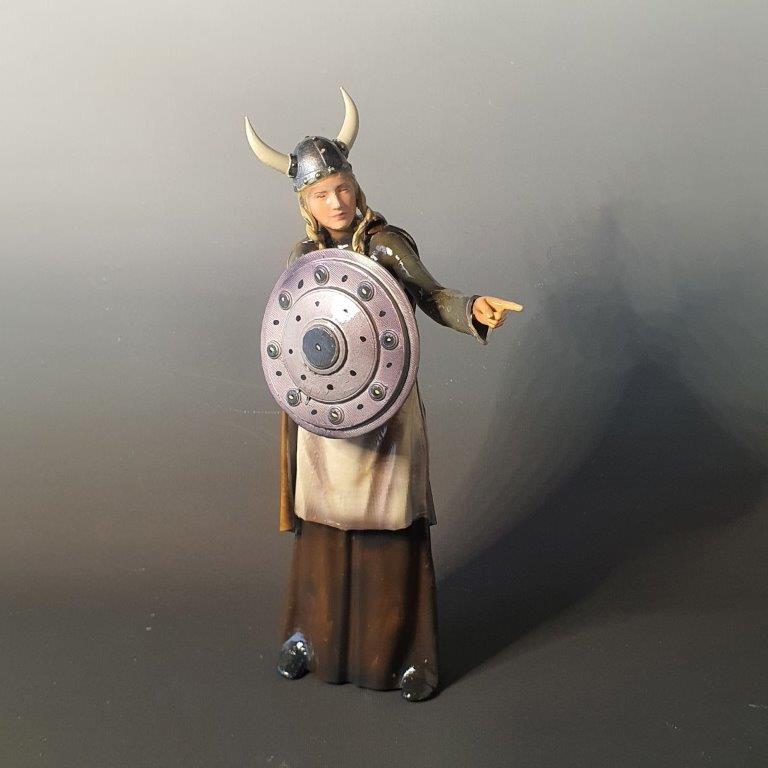
Brynhild - Valkyrie
Brunhild, also known as Brunhilde or Brunhilda, is a legendary figure whose historical and cultural significance is deeply rooted in Germanic and Norse mythology. She is often associated with the Valkyries, powerful and beautiful female warriors who played a vital role in the beliefs and stories of these ancient cultures.
Historically, Brunhild's origins can be traced back to the early medieval epic poems of the Germanic and Norse peoples, such as the Nibelungenlied and the Poetic Edda. In these texts, she is depicted as a formidable warrior queen and a Valkyrie, a divine maiden who chooses warriors for the afterlife in Valhalla. Brunhild's character embodies both the strength and the complexity of female figures in these ancient societies, challenging traditional gender roles and expectations.
Brunhild's cultural significance is reflected in her role as a symbol of power, beauty, and femininity. She is often portrayed as a woman of great intelligence, courage, and determination, characteristics that are admired and respected in both ancient and modern societies. Her story also explores themes of love, betrayal, and revenge, making her a timeless and relatable figure in literature and folklore.
One of the most famous stories involving Brunhild is her marriage to the hero Siegfried and her subsequent rivalry with Kriemhild in the Nibelungenlied. This epic tale has inspired countless adaptations in literature, music, and art, including Richard Wagner's operatic cycle "Der Ring des Nibelungen," which further solidified Brunhild's place in cultural history.
Brunhild's influence extends beyond Germanic and Norse cultures. She has become a symbol of female empowerment and resistance in the face of adversity. In modern times, she has been reimagined in various forms of media, from novels to films, as a feminist icon, challenging societal norms and advocating for women's rights.
In conclusion, Brunhild Valkyrie is a historical and cultural figure whose significance transcends time and place. She represents the strength, intelligence, and complexity of women in ancient Germanic and Norse mythology and continues to inspire and captivate audiences with her timeless story of love, betrayal, and power. Her legacy as a symbol of female empowerment and resistance is a testament to her enduring cultural relevance.